FEATUREDTOOL
Interview question generator for smarter recruiting
Build the perfect set of interview questions to ask candidates within minutes.
2 minute read

GuideCandidate, Employer
A guide to remote working
Working remotely can be a one-off or needs-must for some, but a regularity for others.
It takes trust from the side of management, discipline from the employee, communication between all parties, and the right technology – these four elements are key to the perfect home-work mix.
Working from home can be the answer to several scenarios – from needing to be home to give access to tradespeople, to needing to get your head down and concentrate.
Where to start
If you do not work from home on a regular basis, it can be difficult to know the protocol. Where should you start? What should you be doing? When should you be doing it? Our guide to remote working takes you through the process step by step - from choosing the right workspace, pretending you’re going into the office, to scheduling your day.
You may be worried about allowing your team to work remotely, there certainly isn’t any need for this. It takes trust and planning. If you are organised and set objectives for your team, they will more than likely thrive working at home.
Bukola Odofin
HR Expert, Reed
Technology is key
The biggest drawback to working remotely is isolation from your team. For organisations to work effectively, employees need to collaborate. However, in the 21st century, not being in the same physical location as a key team member is not an excuse for a lack of clear communication.
Download the guide to find out how tools like Microsoft Teams, Slack and Rescue Time can help you.
Managing your team working remotely
There are three remote working tips to remember as a manager when managing your team while working remotely. Firstly, trust – you must have faith that your team are working.
Secondly, tolerance - it may not be your choice to allow your team to work from home, but work with the situation and do what you can.
And finally, support - you need to support other members of your team who have never worked from home before – they may need you now more than ever.
2 MINUTE READ

Interview question generator for smarter recruiting
How does it work?
Step 1
Tell us about the role
To get started, type in the job title you are hiring for and select the relevant job from the drop-down list. Don’t worry if you don’t see your job title in the list, you can still search for any position - just type it in and click enter on your keyboard. Next, choose the level of seniority and sector from the menu, then select up to three soft skills you want your successful candidate to have.
Step 2
Fine tune your questions
Once you have generated your interview questions, Reed’s interview question generator gives you the flexibility to change the order of the questions, choose different skills, refresh the whole set to review more questions, or lock in your favourite questions and refresh the rest.
Step 3
Download or share with your colleagues
Now you have your complete set of interview questions. Either copy the list or download the questions in a Microsoft Word document ready for you to use in your interview. Now it’s over to you to ace the interview and secure your perfect candidate.
Why should recruiters and hiring managers use our tool?
Well-crafted interview questions are essential for determining an interviewee's skills, experience, and fit for the role.
According to our research conducted on 2,000 hiring managers in August 2023, 46% regret being too hasty when hiring new talent. Our interview question generator will give you the tools you need to make confident hiring decisions.
If you are looking for good interview questions for recruiters or managers, our interview question generator is your go-to resource for fast, comprehensive interview question generation, providing you with a wide range of relevant and effective questions to choose from.
This tool uses advanced AI algorithms to generate a list of interview questions to ask candidates that are tailored to the specific requirements of the role and your company. Using the tool ensures that the questions you ask at an interview are relevant, effective, and comprehensive, allowing you to gain a deeper understanding of each interviewee’s strengths and weaknesses. Our interview question generator will save you time and effort, while ensuring that you are asking the right questions to identify the best candidates for your open positions.
Tailoring questions to your industry and role
Our interview question generator will craft a set of interview questions to suit any role, in any sector, across a range of seniority levels, from entry level to c-suite.
Helping recruiters and managers craft better interview questions
By highlighting your top-three most sought-after soft skills, this AI-powered interview question generator will align with your hiring needs, helping you uncover the best talent to help your team thrive.
Helping hiring managers save time
What used to take hours of searching the internet for the best interview questions, will take you no more than five minutes.
Frequently asked questions
What are STAR interview questions?
STAR is an acronym that stands for situation, task, action, and result, and is a well-known formula for candidates to follow when answering interview questions. This helps ensure answers are structured and well thought out. Often used in competency-style interviews, the STAR method is best suited for ‘Explain a time when…’ or ‘Talk about how you have…’ questions.
The candidate should first explain the ‘situation’, setting the scene and giving context, then follow up with the ‘task’ they were responsible for within the situation. Then explain what ‘action/s’ they took, describing their thought process and any challenges they may have faced. Finally, they should explain the ‘result’ of their actions and what was achieved. The best endings will have a quantifiable impact on the organisation, such as making a large sale worth X amount of money.
What should I not do when interviewing a candidate?
One of the most important things not to do when interviewing a candidate is go into the interview unprepared. Most candidates will come well-prepared for their interview, and you should do the same, otherwise you may send the message that you are uninterested and disorganised, giving them a negative view of your employer brand. You should also be careful not to ask any discriminatory or inappropriate questions such as their age or religious affiliations.
Remember, as the interviewer, the onus is on you to ensure you interview correctly to not only get the best out of the interviewee, but to give a good impression of yourself and the business and make the right hiring decision.
How many questions should I ask in an interview?
There is no set limit on how many questions you should ask the interviewee, but according to our research of 2,000 hiring managers, most (82%) ask between five and 15 questions. This should give you enough information to make an informed choice, but not overwhelm the candidate with an unnecessary long interview process.
What is the 80/20 rule in interviewing?
The 80/20 rule of interviewing suggests the interviewee should be talking 80% of the time, and the interviewer should spend 20% of the time asking the questions, discussing their answers, and answering the candidate’s questions. Some managers find it difficult to strike the right balance of talking and listening, so by following this rule, you can ensure you get the most out of the interview.
Generate your set of custom questions with our AI-powered interview question generator.
What used to take hours, now takes minutes.
Get Started
6 MINUTE READ
